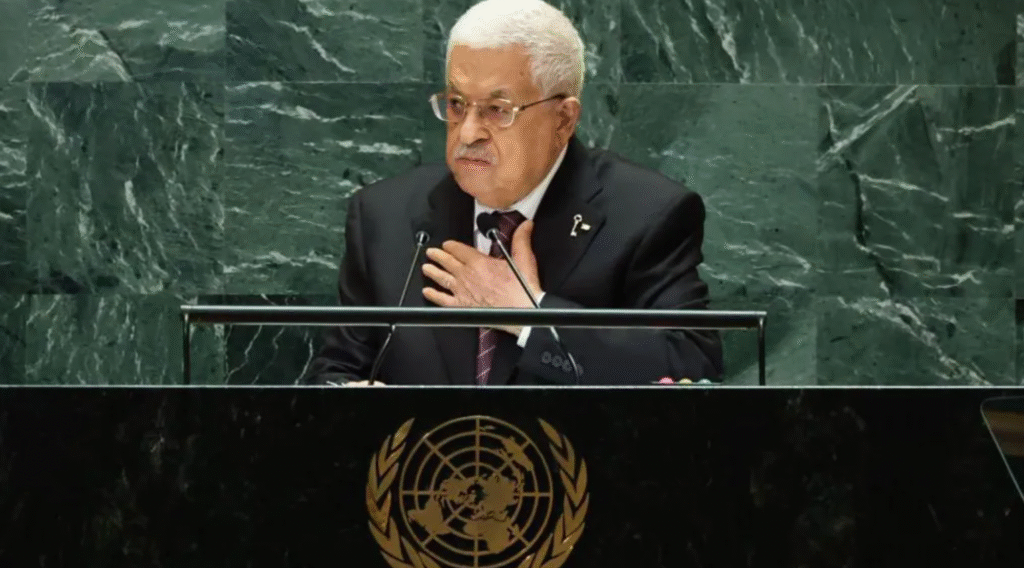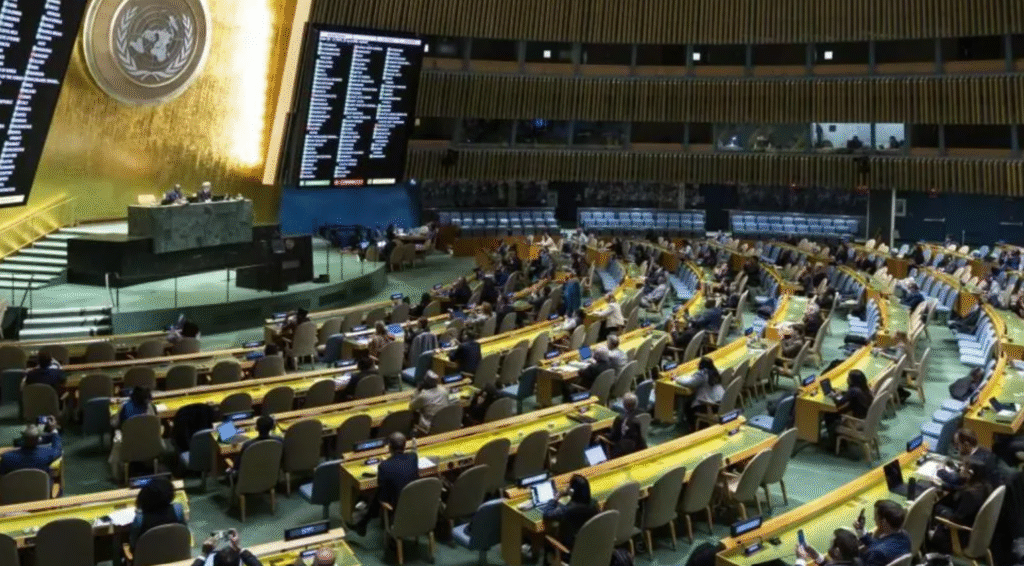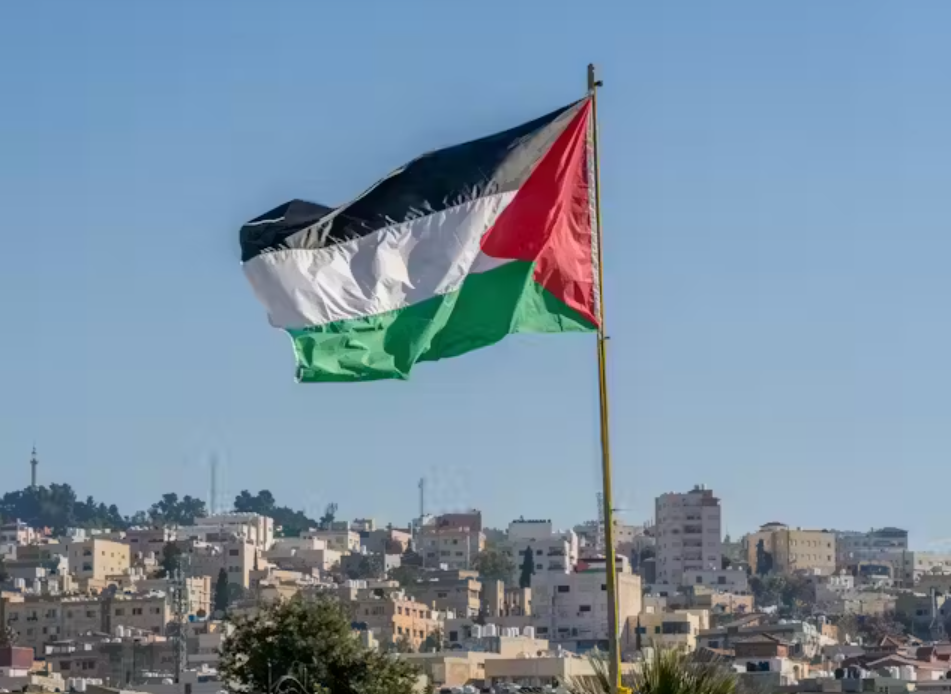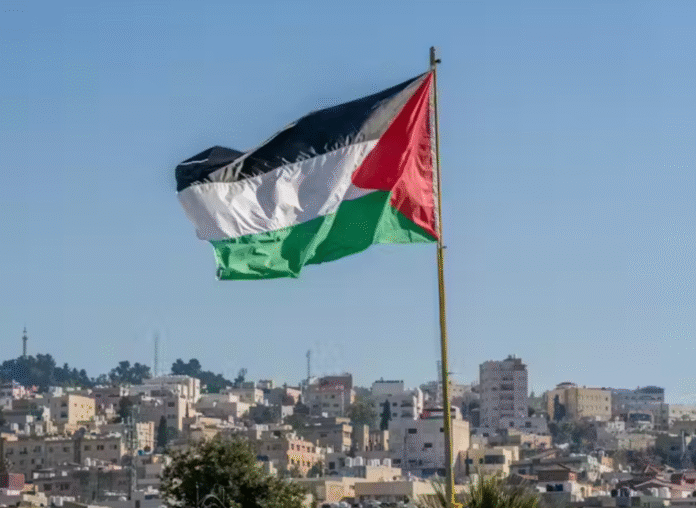US Blocks Palestinian Leader: Shocking UN Visa Decision Sparks Global Reactions
US blocks Palestinian leader Mahmoud Abbas from attending the upcoming United Nations General Assembly in New York, a move that has sparked outrage, raised legal questions, and intensified global debate on the recognition of Palestine. The United States revoked visas for Abbas and roughly 80 other Palestinian officials, preventing them from joining world leaders at one of the most important diplomatic gatherings of the year.
The decision, announced by Secretary of State Marco Rubio, has been welcomed by Israel but condemned by Palestinian representatives and several international voices who argue it violates the UN Headquarters Agreement.

Why the US Blocks Palestinian Leader Mahmoud Abbas
Rubio justified the move by accusing the Palestinian Authority (PA) and the Palestine Liberation Organization (PLO) of undermining peace efforts. He criticized them for seeking “the unilateral recognition of a conjectural Palestinian state” while failing to condemn acts of terrorism.
In his statement, Rubio said the US expects the PA and PLO to:
- Repudiate terrorism, including the October 7 Hamas-led attack on Israel.
- End incitement to violence in schools and public speeches.
- Stop pursuing legal cases against Israel in international courts.
Until these demands are met, Rubio insisted the US would not consider them partners for peace.
Reactions to the Ban
The announcement that US blocks Palestinian leader Abbas drew immediate backlash. Abbas’ office said the decision was “astonishing and contradictory to international law.” Officials highlighted that Palestine is a UN observer state, which should guarantee representation at the General Assembly.
UN spokesman Stephane Dujarric also expressed concern, stressing that “all member states and permanent observers must be represented, especially during discussions on the two-state solution.”
France, the UK, Canada, and Australia, who have voiced intentions to recognize a Palestinian state at the UN session, are expected to challenge the US position.
Israel’s Response
Israel, on the other hand, praised the move. Foreign Minister Gideon Saar applauded the decision, echoing Prime Minister Benjamin Netanyahu’s long-held stance that recognizing Palestine would reward “Hamas’s monstrous terrorism.”
Netanyahu has consistently rejected the two-state solution, instead supporting the expansion of Israeli settlements in the West Bank and military operations against Hamas in Gaza.
Historical Context: UN and Palestine
The controversy over why the US blocks Palestinian leader cannot be understood without looking back at history.
-
1974: The UN recognized the PLO as the “sole legitimate representative of the Palestinian people.”
-
2012: The General Assembly upgraded Palestine to “non-member permanent observer state” status.
-
Today: 147 of the UN’s 193 members recognize Palestine as a state, though it lacks defined borders.
Despite growing international recognition, Palestine’s political authority remains divided between Hamas in Gaza and Fatah in the West Bank. This fragmentation has weakened its position in negotiations.

The UN Headquarters Agreement Dispute
One of the most contentious aspects of this decision is whether the US has violated the UN Headquarters Agreement. This agreement requires the US to allow foreign officials entry to attend UN meetings, “irrespective of relations between their governments and the United States.”
By blocking Abbas and his delegation, critics argue Washington is undermining the neutrality of the UN. The case could potentially escalate into a broader legal dispute between the UN and the US.
Global Stakes
The timing of this move is especially significant. France and Saudi Arabia are set to co-host a major discussion on the two-state solution during the General Assembly. Blocking Abbas from participating could derail dialogue at a moment when many nations are pressing for renewed peace efforts.
Countries like the UK and Canada have hinted at recognizing Palestine formally, a move that could shift the global diplomatic landscape, even if it doesn’t immediately change realities on the ground.
The Humanitarian Backdrop
Beyond politics, the decision comes against the backdrop of immense suffering in Gaza. Since Israel’s military campaign began in October 2023, more than 63,000 Palestinians have been killed, according to Gaza’s health ministry. Israel launched the campaign after the Hamas-led assault that left 1,200 Israelis dead and hundreds taken hostage.
The humanitarian toll has only intensified calls for a political solution. For many, excluding Palestinian leaders from the UN undermines chances of progress.

Conclusion: What Happens Next?
The fact that the US blocks Palestinian leader Mahmoud Abbas from attending the UN General Assembly is more than a visa dispute. It has raised profound questions about international law, US influence over the UN, and the future of the Palestinian statehood movement.
With France, the UK, and others pushing for recognition of Palestine, this decision could backfire diplomatically, leaving Washington increasingly isolated. At the same time, Israel stands firm in rejecting any move toward Palestinian statehood.
Whether the ban will hold or be overturned remains uncertain. But one thing is clear: the debate over Palestine’s future has just become even more intense on the world stage.

